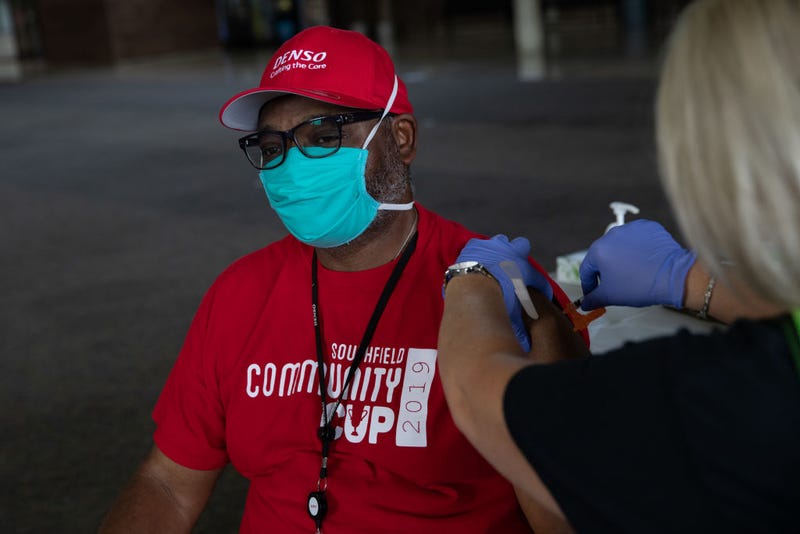
We should be getting our arms ready for yet another shot of COVID-19 vaccine by the fall, Moderna CEO Stephane Bancel said Thursday.
Bancel – who was interviewed by Goldman Sachs during the investment bank's health-care CEO conference, according to NBC News – said that booster shot efficacy will likely wane over time.

As of this month, booster shots are for all three vaccines approved for use in the U.S. For the Pfizer BioNTech and Moderna vaccines – which are recommended by the Centers for Disease Control and Prevention – boosters are the third shot people will receive. For the Johnson & Johnson shot – which has been linked to blood clotting issues – the booster is a second shot.
So, once fall comes around, those who want to stay protected from COVID-19 will likely be getting a third or fourth shot.
Bancel said people who received their boosters in the fall should have enough protection to get them through the winter. New infections tend to surge in winter months, when people people are indoors more often due to cold weather.
“I will be surprised when we get that data in the coming weeks that it's holding nicely over time – I would expect that it's not going to hold great,” Bancel said, referring to the strength of the booster shots.
Another complication for vaccines has been the omicron variant, which is highly contagious and causes some breakthrough infections in people who are fully vaccinated and boosted. As of Jan. 1, more than 95 percent of cases in the U.S. were caused by the omicron variant, according to the CDC.
By Monday, the U.S. had 1 million new COVID-19 cases.
Data from the U.K.Health and Security Agency found that Moderna and Pfizer's two-dose vaccines are only about 10 percent effective at preventing symptomatic infection from omicron 20 weeks after the second dose.
The same study found that booster shots were 75 percent effective at preventing symptomatic infections for two weeks. Furthermore, data published by Moderna last month that indicates its 50-microgram booster shot increased the antibodies that block infection from omicron 37-fold and a 100-microgram booster increased those antibodies 83-fold.
However, the U.K. study found that the efficacy of booster shots starts to decline after about four weeks.
Pfizer CEO Albert Bourla also told CNBC last month that people will likely need a fourth dose, and the shot may be needed sooner than expected due to omicron. As the variant fuels case surges around the world some countries – such as the U.K. and South Korea – are already ordering new booster doses in preparation, said Bancel.
“I still believe we're going to need boosters in the fall of '22 and forward,” he said. The CEO also predicts that people who are older or have underlying health conditions might need annual boosters in the future.
“We have been saying that we believe first this virus is not going away,” Bancel said. “We're going to have to live with it.”
One silver lining of the omicron surge, according to Bancel’s comments during the Goldman Sachs interview, is that the variant – which appears to cause less severe illness than other forms of SARS CoV-2 – could bring the virus to an endemic phase. At that point, enough people have immune protection to render COVID-19 less disruptive to everyday life, much like a cold or flu.
This isn’t a given, though. Bancel noted that omicron has already surprised the scientific community. Another random mutation could change the course of the pandemic, he explained.
LISTEN on the Audacy App
Sign Up and Follow Audacy
Facebook | Twitter | Instagram
